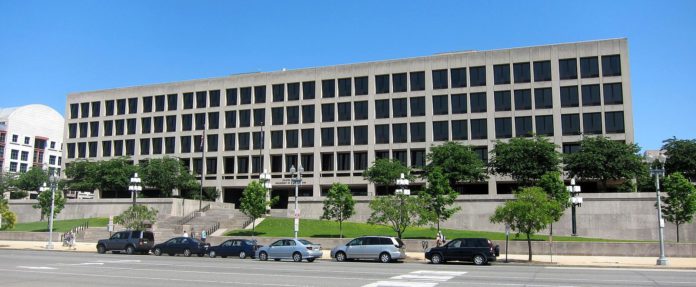

The Department of Labor and Department of Homeland Security on Oct. 6 released new rules that will make it more difficult and expensive to employ H-1B workers and other foreign professionals.
The most immediate and dramatic rule change came from the Department of Labor, which greatly increased the minimum wages H-1B workers and employment-based green card seekers must be paid.
The DOL defines four prevailing wage levels for various job categories according to the skills and experience required, which are based on economic survey data from around the country. Previously, an entry-level job to be filled by an H-1B worker or other skilled foreign national was required to offer a salary in the 17th percentile of wages for that job and location. Under the new calculation, the salary offered for the same job would need to be in the 45th percentile. For the highest skilled jobs, the prevailing wage has jumped from the 67th percentile to the 95th percentile.
“Over the course of a day or so, what they consider the minimum prevailing wage really jumped substantially,” said Caplan & Earnest member Brad Hendrick.
Holland & Hart partner Roger Tsai said the rule, which took effect immediately, has had “whiplash-like effects” for employers. According to Tsai, some employers who had been preparing to file H-1B extensions for people already approved for H-1B status are now reconsidering whether to move forward with the applications.
“There has been a significant jump in the prevailing wage, anywhere from 30 to 60%,” Tsai said. “It may price out some positions and may price out some employers.”
The new prevailing wage calculations apply to H-1B visa applications and extensions and specialty occupation visas for Australians, Singaporeans and Chileans. The updated wage levels will also be used for the Department of Labor’s permanent labor certification process, a test of the labor market required for an employer-sponsored green card.
The Labor Department bypassed the public comment period typically required before making such changes, citing the high levels of unemployment during the pandemic as justification for the emergency measure. The move and its rationale drew skepticism. In an article published last week, Forbes senior contributor Stuart Anderson wrote that unemployment in computer-related occupations remains low at 3.5%, up just half a percentage point over January levels. The Trump administration cited April’s unemployment rate of 14.7% when explaining the change instead of the much-improved numbers from September.
The DHS also unveiled an interim final rule, which takes effect Dec. 7, that will make it harder for H-1B applicants to qualify for the visa. The new rule narrows the definition of a “specialty occupation” required for an H-1B visa. While H-1B workers have generally been expected to hold bachelor’s degrees in certain fields, Tsai said, the latest changes specify that a degree is “always” required.
“They have created an expectation that the employer ‘always’ requires a bachelor’s degree,” Tsai said. “And not just requires a bachelor’s degree, but in a very small number of set majors.”
The change means more scrutiny on H-1B applicants’ degrees to make sure their education is narrowly tailored to the job they’re seeking. While some positions are generally only be filled by those with specific degrees — for example, nurses are required to have at least a bachelor’s degree in nursing — the degree requirements for other jobs aren’t so clear cut, Tsai said, such as software developer positions, which are often filled with workers from varied STEM backgrounds. “It’s those types of positions that are under quite a bit of scrutiny,” he added.
“It really changes the definition of what is considered a specialty occupation. It really tries to tighten up what degrees are considered acceptable,” said Hendrick, adding the tightened requirements will make documentation more challenging for employers.
A third change would increase restrictions on H-1B workers assigned to third-party work sites. Under this arrangement, workers are technically employees of a consulting firm but perform work for another company. According to the new rule, H-1B visas for these workers will be valid for only one year rather than three years as previously allowed. There will also be more scrutiny of consulting companies to determine whether they have a true employer-employee relationship with H-1B workers, according to Tsai.
Owing to the lack of public comment, the rules are expected to face a court challenge.
“I would expect that there’s going to be some litigation around these rules,” Hendrick said. “Not only based on the content of them but also around the justification for why they were put forth. So, I don’t think that this is the final word.”
In the meantime, Hendrick said, for employers who feel the changes aren’t practical, “it might be time to speak to their congressional representatives about this.”
“In the four years of the Trump administration — in terms of employment-based sponsorship — this latest change is the most far-reaching and profound in terms of its impact on employers and immigrant workers,” Tsai said.
“I think it is a bit of taking a sledgehammer to what it perceives is a problem,” Tsai added, noting there are already strict quotas on the number of H-1B visas, and most applications his clients file are for hard-to-fill “six-figure positions in hard science fields.”
“This is pretty dramatic and making employers and business leaders question whether or not they want to hire immigrant workers, which I think may be overkill,” he said. “Because they would not have hired or even thought about H-1B workers unless they couldn’t find workers for this particular position. This just means that open positions will remain open.”
—Jessica Folker

